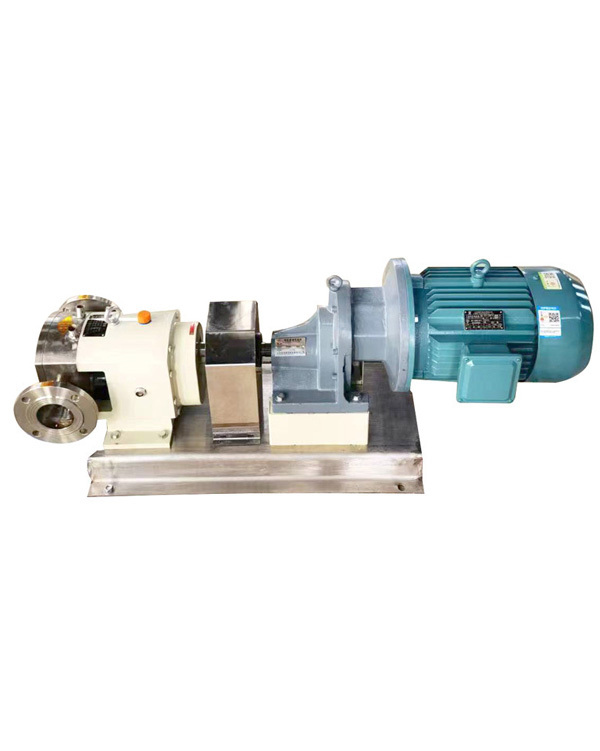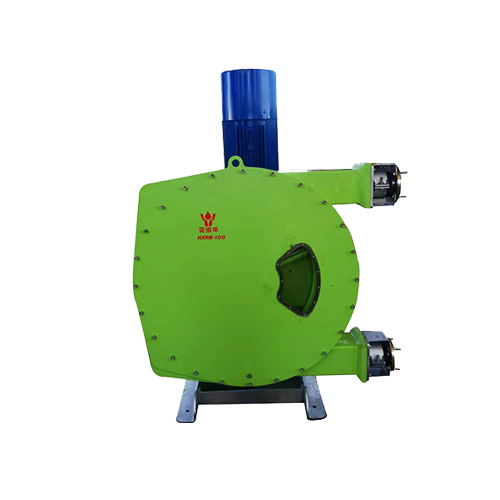Understanding Rotary Lobe Pumps for Wastewater Sludge Management
Mar 01,2025

Rotary lobe pumps are specialized devices designed to handle various fluids, particularly in challenging environments such as wastewater treatment facilities. These pumps utilize two or more lobes that rotate in a synchronized manner, creating a consistent flow of sludge or other viscous materials. The unique construction of rotary lobe pumps makes them particularly adept at managing wastewater sludge, which often contains solid particles, oils, and other challenging components.
One of the primary advantages of rotary lobe pumps is their ability to handle high-viscosity fluids without damaging the material being pumped. This feature is crucial in wastewater treatment, where the sludge can vary significantly in consistency. The gentle pumping action of rotary lobe pumps minimizes shear forces, ensuring that the sludge remains intact and does not lose its structural integrity. This is essential for maintaining the quality of the sludge while transferring it to treatment or disposal sites.
Moreover, rotary lobe pumps are known for their efficiency and reliability. They provide a steady flow rate, which helps in maintaining consistent operations in wastewater treatment plants. This reliability is paramount, as any disruption in pumping can lead to operational inefficiencies or even regulatory compliance issues. The design of these pumps allows for easy maintenance, reducing downtime and ensuring that facilities can operate smoothly.
In addition to their operational benefits, rotary lobe pumps are also favored for their versatility. They can handle a wide range of materials beyond wastewater sludge, including slurries, food products, and even chemicals. This adaptability makes them a valuable asset in various industries, including food and beverage, pharmaceuticals, and chemical processing.
It's also worth noting that advances in technology have led to the development of more efficient and environmentally friendly rotary lobe pumps. These modern pumps often incorporate features such as energy-efficient drives, which help reduce operational costs and minimize environmental impact. As industries continue to seek sustainable solutions, the role of rotary lobe pumps in wastewater management and other applications is likely to expand.
In conclusion, rotary lobe pumps represent a reliable and efficient solution for managing wastewater sludge in industrial settings. Their ability to handle challenging materials with care, combined with their versatility and technological advancements, make them an essential component in many applications. Understanding the operational principles and benefits of these pumps is crucial for professionals involved in wastewater management and industrial processes. Whether you are looking to optimize your existing systems or explore new solutions, rotary lobe pumps can be a key consideration in your operational strategy.
One of the primary advantages of rotary lobe pumps is their ability to handle high-viscosity fluids without damaging the material being pumped. This feature is crucial in wastewater treatment, where the sludge can vary significantly in consistency. The gentle pumping action of rotary lobe pumps minimizes shear forces, ensuring that the sludge remains intact and does not lose its structural integrity. This is essential for maintaining the quality of the sludge while transferring it to treatment or disposal sites.
Moreover, rotary lobe pumps are known for their efficiency and reliability. They provide a steady flow rate, which helps in maintaining consistent operations in wastewater treatment plants. This reliability is paramount, as any disruption in pumping can lead to operational inefficiencies or even regulatory compliance issues. The design of these pumps allows for easy maintenance, reducing downtime and ensuring that facilities can operate smoothly.
In addition to their operational benefits, rotary lobe pumps are also favored for their versatility. They can handle a wide range of materials beyond wastewater sludge, including slurries, food products, and even chemicals. This adaptability makes them a valuable asset in various industries, including food and beverage, pharmaceuticals, and chemical processing.
It's also worth noting that advances in technology have led to the development of more efficient and environmentally friendly rotary lobe pumps. These modern pumps often incorporate features such as energy-efficient drives, which help reduce operational costs and minimize environmental impact. As industries continue to seek sustainable solutions, the role of rotary lobe pumps in wastewater management and other applications is likely to expand.
In conclusion, rotary lobe pumps represent a reliable and efficient solution for managing wastewater sludge in industrial settings. Their ability to handle challenging materials with care, combined with their versatility and technological advancements, make them an essential component in many applications. Understanding the operational principles and benefits of these pumps is crucial for professionals involved in wastewater management and industrial processes. Whether you are looking to optimize your existing systems or explore new solutions, rotary lobe pumps can be a key consideration in your operational strategy.
Contact Us
E-mail :
sales@yaquanpump.com
service@yaquanpump.com
Phone/WhatsApp:
+44 7301702546
+63 9452052801
Address:
Room B208, Building 2, North Hongqiao Songri Center, No.215 Gaochao Road, Jiading District, Shanghai









